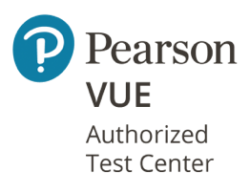Course Details
Topic 1 Enterprise Architecture
- Enterprise network
- Wireless network design principles
- Overview of Cisco SD-WAN solution
- Overview of Cisco SD-Access solution
- Wired and wireless QoS configurations
Topic 2 Virtualization Technologies
- Virtualization technologies
- Hypervisor type 1 and 2
- Virtual machine
- Virtual switching
- Configure and verify data path virtualization technologies
- Network virtualization concepts
Topic 3 Network Infrastructure
- Troubleshoot static and dynamic 802.1q trunking protocols
- Troubleshoot static and dynamic EtherChannels
- Configure and verify common Spanning Tree Protocols (RSTP, MST) and Spanning Tree enhancements
- Routing concepts of EIGRP and OSPF (advanced distance vector vs. link state, load balancing, path selection, path operations, metrics, and area types)
- Configure simple OSPFv2/v3 environments
- Configure and verify eBGP between directly connected neighbors
- Policy-based routing
- Layer 1 concepts
- Access point discovery and join process
- Main principles and use cases for Layer 2 and Layer 3 roaming
- Troubleshoot WLAN configuration and wireless client connectivity issues using GUI only
- Wireless segmentation with groups, profiles, and tags
- Network time protocol configurations such as NTP and PTP
- Configure NAT/PAT
- Configure first hop redundancy protocols, such as HSRP, VRRP
- Multicast protocols, such as RPF check, PIM and IGMP v2/v3
Topic 4 Network Assurance
- Diagnose network problems using tools such as debugs, conditional debugs, traceroute, ping, SNMP, and syslog
- Configure and verify Flexible NetFlow
- Configure SPAN/RSPAN/ERSPAN
- Configure and verify IPSLA
- Describe Cisco DNA Center workflows to apply network configuration, monitoring, and management
- Configure and verify NETCONF and RESTCONF
Topic 5 Network Security
- Configure and verify device access control
- Configure and verify infrastructure security features
- REST API security
- Configure and verify wireless security features
- Components of network security design
Topic 6 Network Automation
- Basic Python components and scripts
- Construct valid JSON-encoded files
- High-level principles and benefits of a data modeling language, such as YANG
- APIs for Cisco DNA Center and vManage
- REST API response codes and results in payload using Cisco DNA Center and RESTCONF
- Construct an EEM applet to automate configuration, troubleshooting, or data collection
- Compare agent vs. agentless orchestration tools
Final Assessment
- Written Assessment (SAQ)
- Practical Performance (PP)
Course Info
Promotion Code
Your will get 10% discount voucher for 2nd course onwards if you write us a Google review.
Minimum Entry Requirement
Knowledge and Skills
- Able to operate using computer functions
- Minimum 3 GCE ‘O’ Levels Passes including English or WPL Level 5 (Average of Reading, Listening, Speaking & Writing Scores)
Attitude
- Positive Learning Attitude
- Enthusiastic Learner
Experience
- Minimum of 1 year of working experience.
Target Age Group: 18-65 years old
Minimum Software/Hardware Requirement
Software:
TBD
Hardware: Window or Mac Laptops
Job Roles
- Network Engineer
- Systems Administrator
- Network Administrator
- Cisco Certified Network Professional
- IT Manager
- Network Architect
- Security Engineer
- Network Operations Center (NOC) Engineer
- Wireless Communications Engineer
- Data Center Networking Specialist
- Network Solutions Designer
- Infrastructure Engineer
- VPN Network Specialist
- Network Security Analyst
- Cloud Networking Engineer
- Network Automation Engineer
- Technical Support Engineer
- Enterprise Network Consultant
- Senior Network Technician
- Network Implementation Specialist
Trainers
Dr. Alfred Ang: Dr. Alfred Ang is the founder of Tertiary Courses. He is a serial entrepreneur. He founded OSWeb2Design Singapore Pte Ltd in 2007 offering web development, e-commerce store development, graphics design, ebook publishing, mobile apps development, and digital marketing services. He established the first online gardening store in Singapore, Eco City Hydroponics Pte Ltd in 2000, offering a wide range of gardening products such as seeds, plant nutrients, hydroponics kits etc. Eco City Hydroponics has become the most popular and successful gardening store in Singapore. He founded Tertiary Infotech Pte Ltd in 2012 and transformed the business to a training platform, Tertiary Courses in 2014. Tertiary Courses offers a wide range of SkillsFuture courses for PMETs to upgrade their skills and knowledge. He also established Tertiary Courses Malaysia in 2016. He also founded Tertiary Robotics in 2015 offering Arduino, Raspberry Pi, Microbit and Robotics products
Dr. Alfred Ang earned his Ph.D. from National University of Singapore in 2000, majoring in Electrical and Electronics Engineering. He also completed an online MBA course with U21 Global based in Australia. He obtained his B.Sc (Hons) from National University of Singapore in 1992, majoring in Physics. He topped his Physics cohort for 3 consecutive years and funded his degree study with Book price, awards and tuition. He has worked in Defence, Electronics and Semiconductor Industries. His current interests include Machine Learning, Deep Learning, Artificial Intelligence, Internet of Things, Robotics and Programming.
Dr. Alfred Ang is a ACTA certified trainer and DACE certified course developer. He was Distinguished Toastmasters (DTM) and Senior Member of IEEE. He has published more than 20 peer reviewed papers and co-inventors for more than 20 inventions.
Marcel Leng: Marcel Leng is a ACTA certified. Marcel graduated with majors in Applied Mathematics and Physics from the National University of Singapore.
His core specialisation skills are R, Python, Machine Learning, Statistical Analysis, and Data Visualisation in Tableau. His current interests include Machine Learning, Deep Learning, Artificial Intelligence, Internet of Things, Robotics and Programming.
Customer Reviews (1)
- will recommend Review by Course Participant/Trainee
-
A lot of content for 2 days, good resource and materials, but need time to understand the mathematics of the subject (Posted on 3/31/2022)1. Do you find the course meet your expectation? 2. Do you find the trainer knowledgeable in this subject? 3. How do you find the training environment























